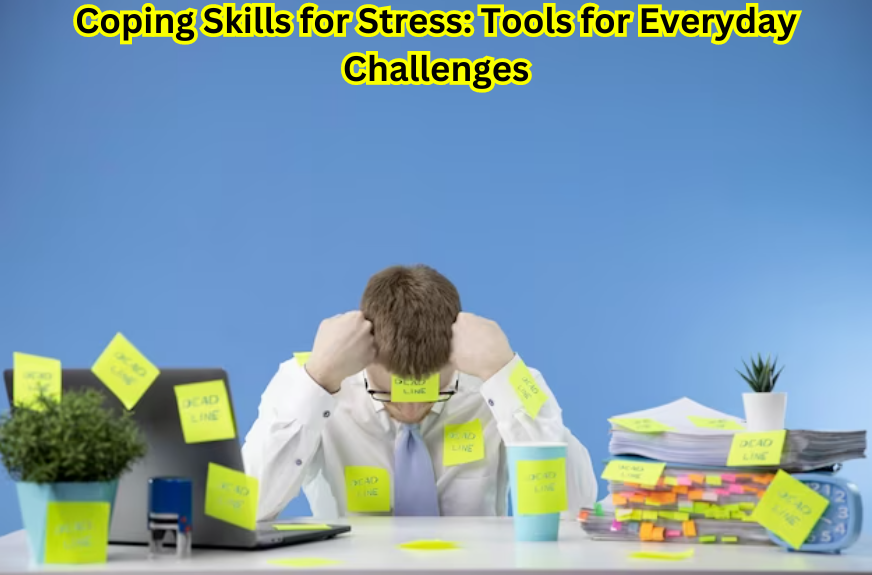In the busy world we live in now, worry can feel like an inevitable companion. However, learning how to deal with problems healthily can change how we deal with the problems we face every day. “Coping Skills for Stress: Tools for Everyday Challenges” is a complete guide to understanding and using strategies to help you deal with stress strongly and gracefully.
Bringing to light the effects of stress
Being Aware of the Weight of Stress
How to Understand the Burden
Before discussing ways to deal with stress, it is important to understand how it can affect our mental and physical health. Many things can cause stress, from pressure at work to personal duties.
The Price of Health
Stress does not just affect your mind; it also shows up in your body. The effects of long-term worry on health include heart problems, weakened immune systems, and a higher risk of mental health conditions.
Toolbox for Coping Skills
Mindfulness and ways to calm down
Choosing to be mindful
Mindfulness means being fully aware of the present moment, a great way to lower stress. Being in the present moment through exercises like gradual muscle relaxation, deep breathing, and meditation can help you feel less stressed.

Getting your body to respond to relaxation
You can start the body’s rest reaction by listening to soothing music, taking warm baths, or being outside. These activities work against the effects of stress on the body.
Organizing and managing your time
Setting priorities for tasks
Time organization is one of the most important skills for dealing with worry. Sort jobs by how quickly and important they are, then break them into parts you can handle. This method keeps you from feeling overwhelmed and gives you a sense of control.
Putting together a structured routine
Setting up a daily routine can help make plans less confusing. Structure makes it possible to get things done and reduces worry by eliminating the unknown.
Cognitive techniques and a positive mindset
Changing Points of View
A cheerful attitude can help you deal with stress. Focusing on answers instead of problems can help you change your thoughts about bad things. With a growth-oriented mindset, you can see problems as chances to learn and grow.
Restructuring the mind
Challenge and rethink ways of thought that are not working right. Cognitive restructuring helps you deal with problems in a more balanced and realistic way by pointing out and fixing negative thought processes.
Getting Past Common Problems
Dealing with Procrastination
Breaking up big tasks into smaller ones
Putting things off often makes worry worse. To avoid this, break up big chores into smaller ones that are easier to handle. When you finish smaller jobs, you gain energy, which makes bigger tasks seem less scary.
Setting Doable Goals
Setting goals that you can reach is a key part of stopping yourself from putting things off. Realistically set your goals, knowing that you can not achieve perfection. To keep yourself going, celebrate small wins along the way.
Creating long-term ways to deal with stress
Setting up a network of support
How Important It Is to Connect
Having strong social ties can help you deal with stress. Build bonds that help you feel better, and do not be afraid to talk about how you feel with family or people you trust.
Looking for Professional Help
When things are tough, getting Help from a professional is a sign of power, not weakness. Helpful people like therapists, coaches, and support groups can help you learn how to deal with stress and build coping skills.
Conclusion: Empowering Your Stress Journey
As we go through the complicated parts of life, learning how to deal with stress becomes a powerful journey of self-discovery. These tools will help you deal with everyday problems, from being aware and managing your time to keeping a good attitude and asking for Help. Using these skills every day will not only help you deal with stress better, but it will also make you stronger and improve your health. Dealing with problems can change your life; use your coping skills to find a calmer and healthier way of living.


